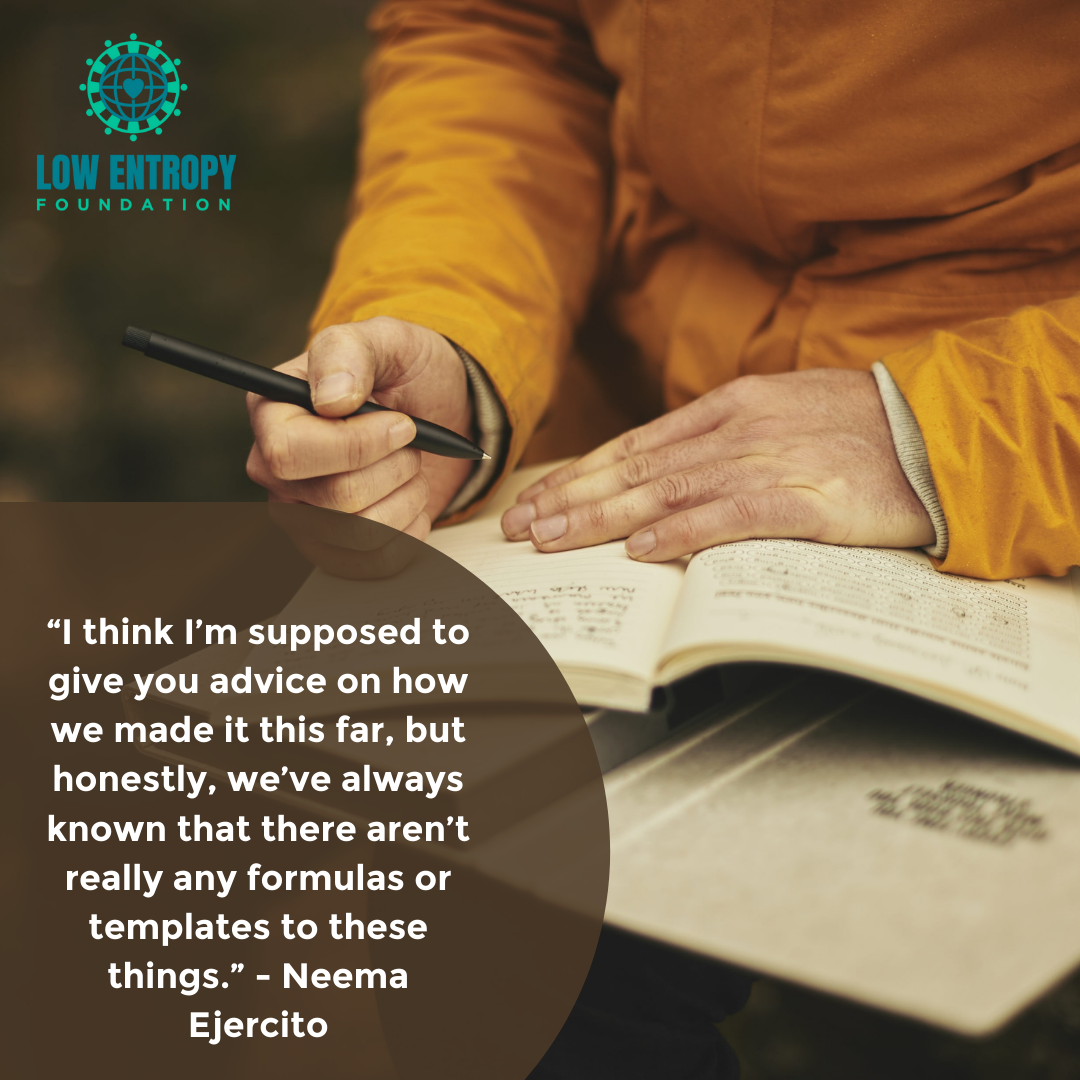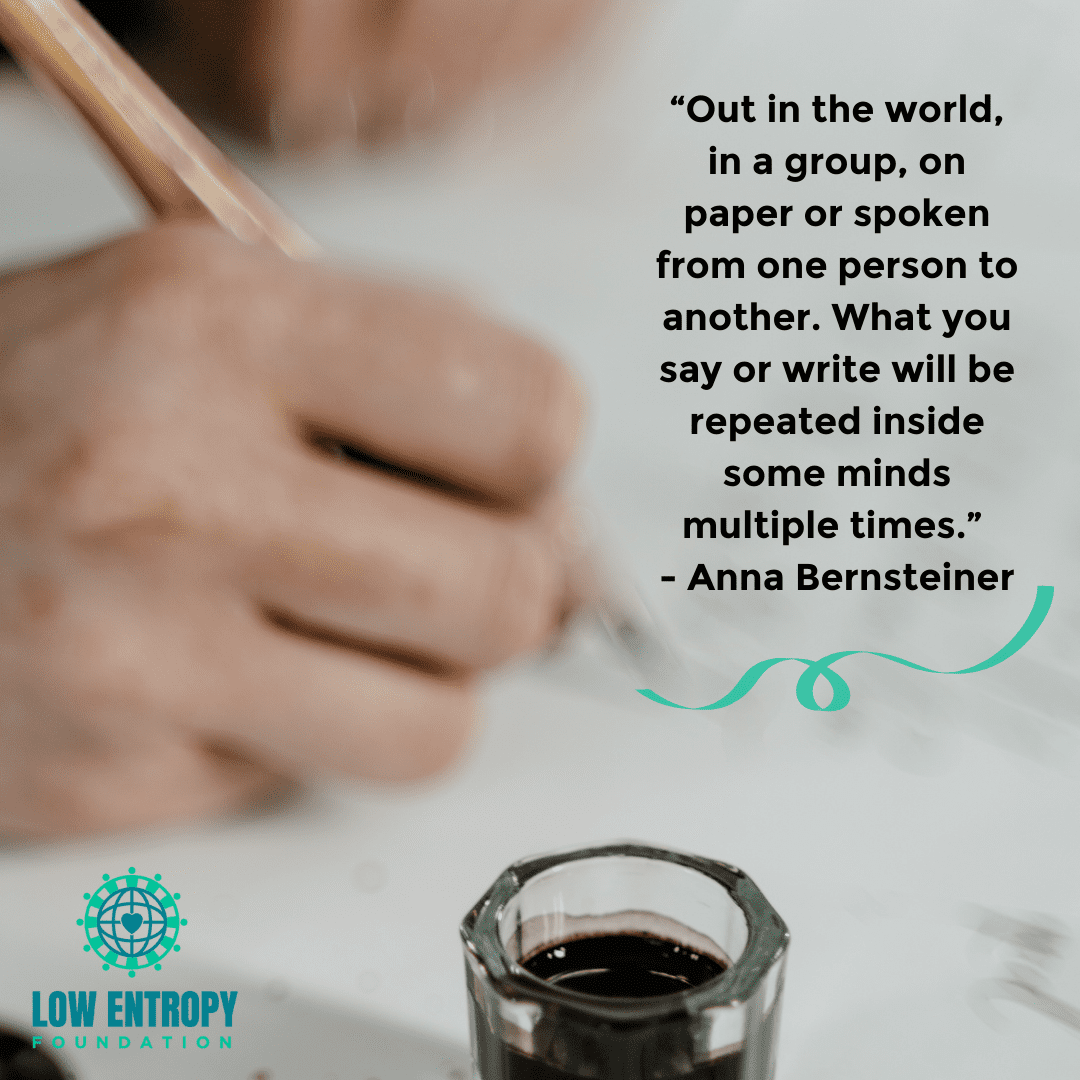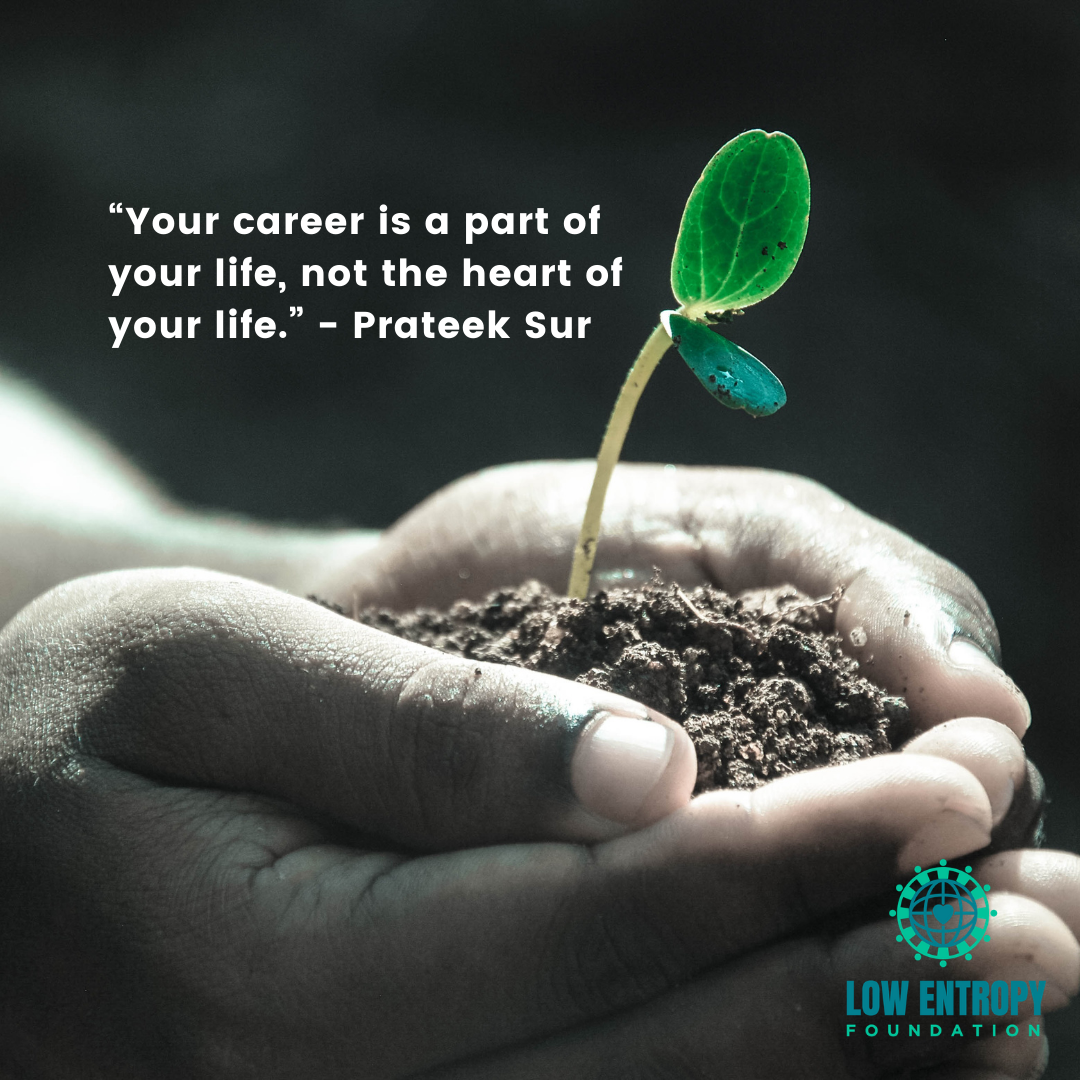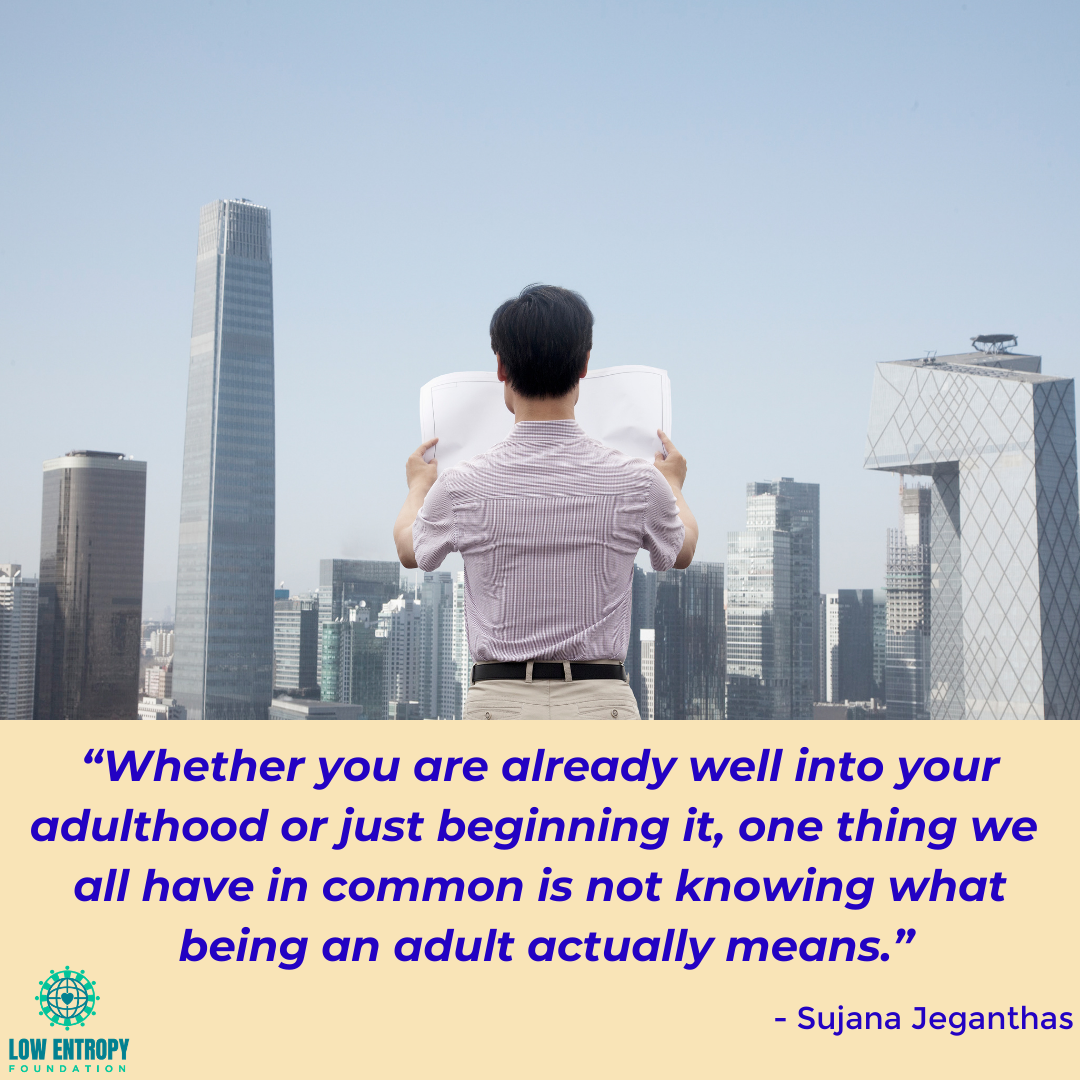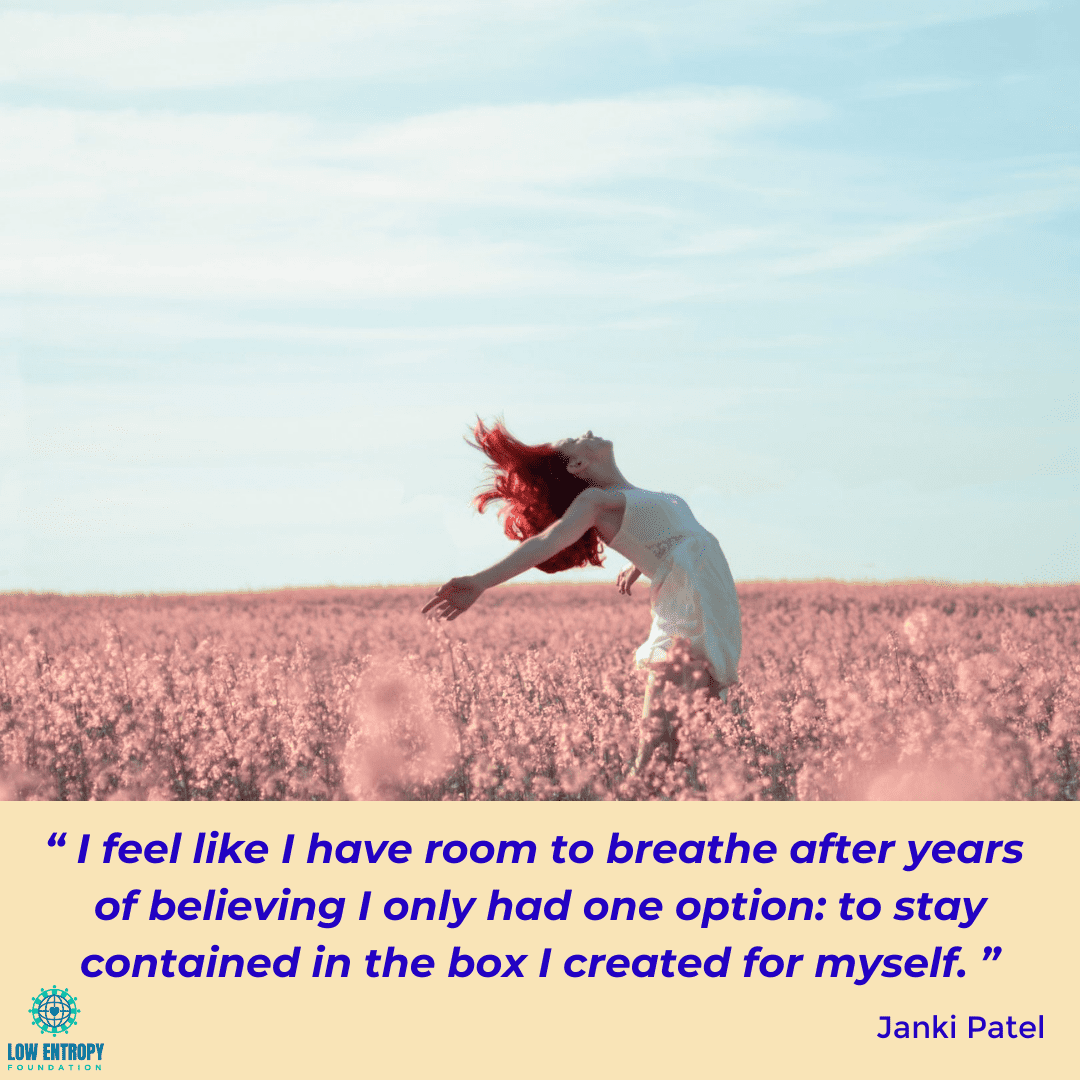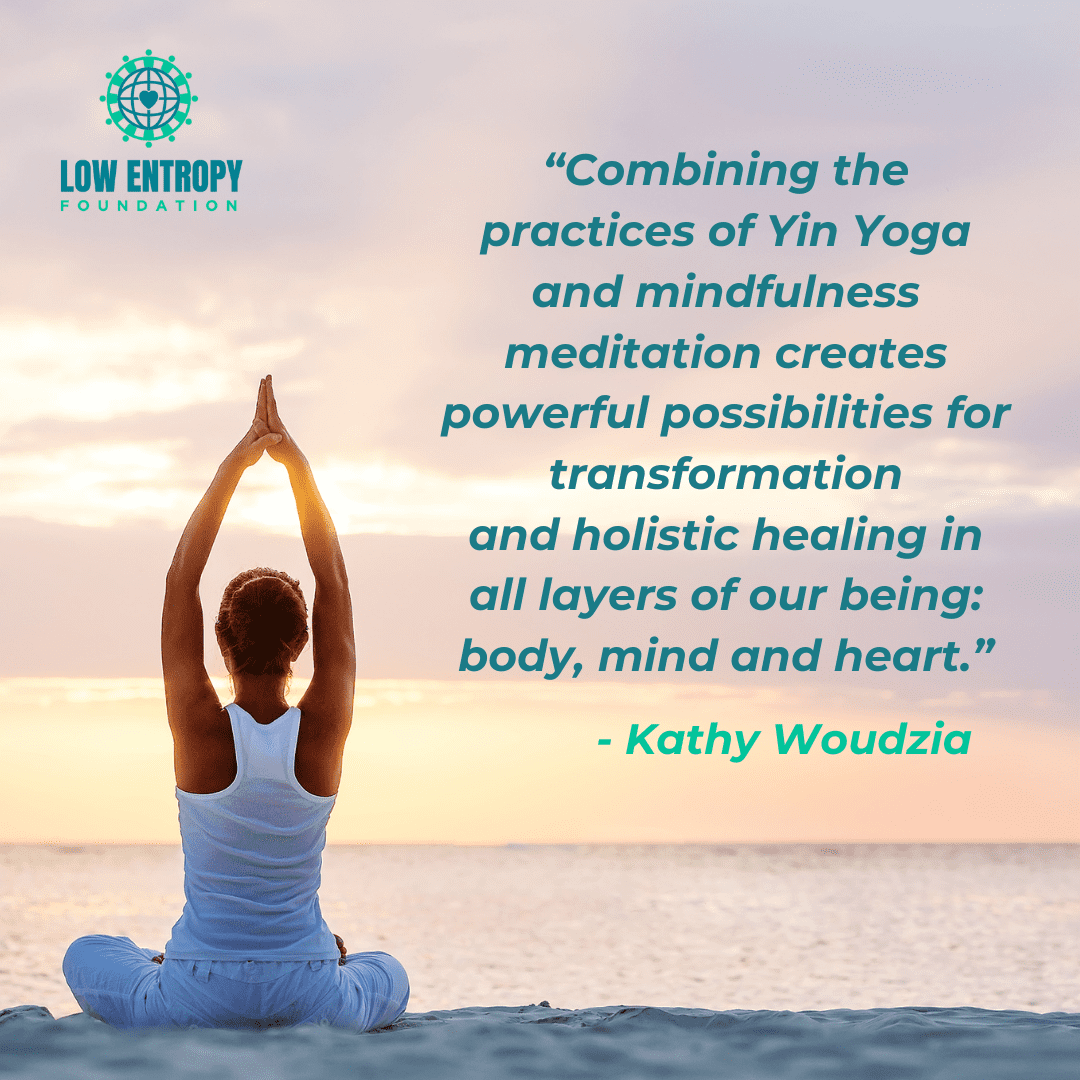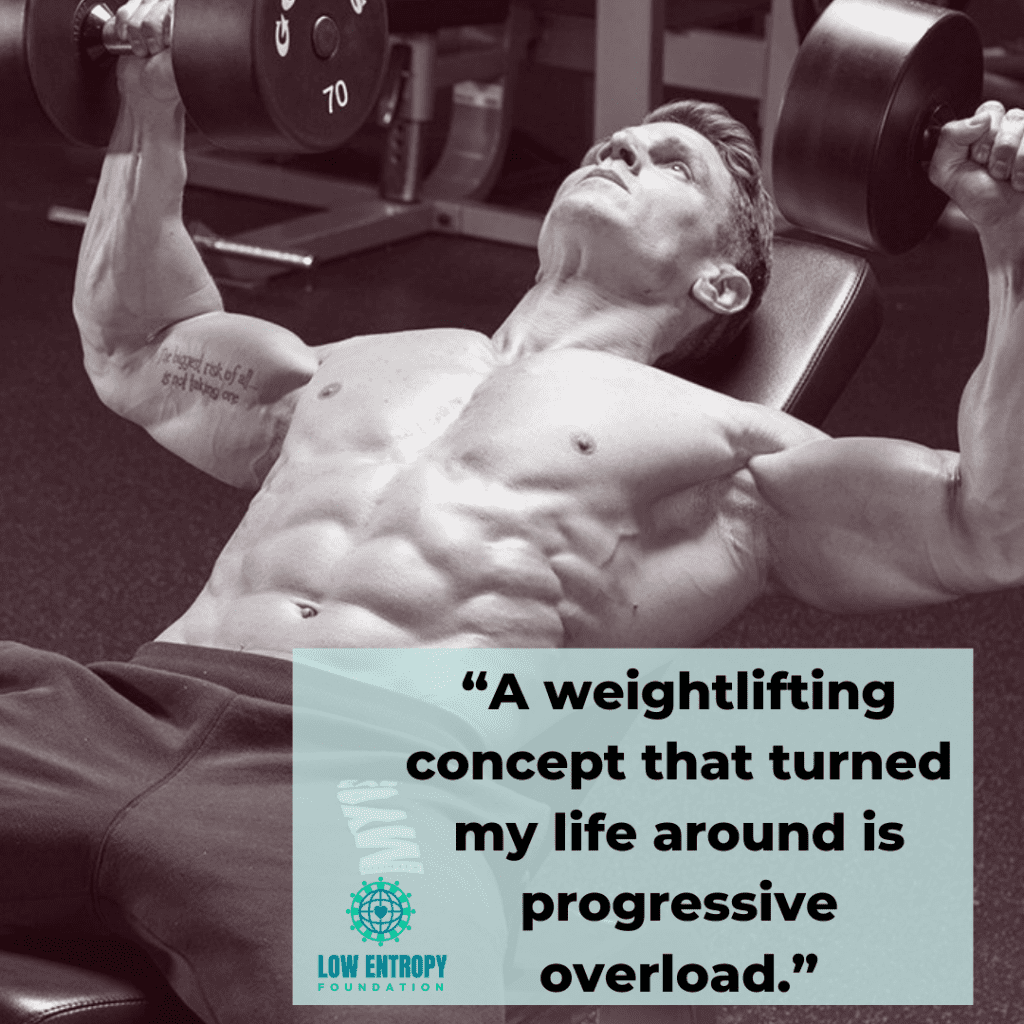Neema Ejercito (she/her/hers), Low Entropy Volunteer Writer
My dearest Neema,
So here we are at the age where we wanted to be when we were in our 30s. I remember us telling Mommy whenever we encountered challenges how much we wanted to skip over all of that and just be me now — wise, calm and transcendental, ha! I definitely give less f’s now, but I don’t know if I’d call myself all of those adjectives. I definitely feel a lot achier and slower. I remember when we saw our 80-plus-year-olds then, Tito George and Tita Lory, when we were in our late 40s, after having moved to Vancouver. We were observing them because we wanted to understand our parents more, and we also wanted to see what we would look forward to in our senior years.
How we struggled to make sense of our move to Vancouver then. I remember the frustration we felt at things not moving according to our own pace, and the uncertainty of our permanent resident approval and later, our citizenship. I think I’m supposed to give you advice on how we made it this far, but honestly, we’ve always known that there aren’t really any formulas or templates to these things. And like what we’ve discovered when someone needs us, it truly is the time we spend with them that matters the most. Money helps, and talks – I still recall us realizing the double-edged truth to the latter.
Let’s see, maybe I can tell you how you and Ron are doing. Before that, let me tell you how you are doing. We are still writing, and I love that that’s exactly what we wanted to be doing in our senior years. Even then, we didn’t believe in retirement. We are writing, getting published and making appearances, but more importantly, we are still teaching. We’ve always liked the flexible schedule, especially now that we can spend time with our grandchildren. So because, I guess, of the success of our writing projects, we are at a place where we can actually dictate when to work and what projects to take — yey! I know we’ve always wondered if we were ever going to get to that point, even being content daydreaming about it because it always seemed out of reach, or more for other people, but never for us. Only “nice to have,” so to speak.
Before getting into the grandkids, we do have a couple of feature films (one animated and one live-action) produced, a couple of chapbooks under our belt and a book series. Prior to Julia Cameron’s passing, she actually coordinated with us so that we could come up with our own version of The Artist’s Way. With her blessing, ours is called The Artist in Me.
So how are you and Ron? He actually passed on at 70, the year he wished to die. I am constantly thankful that he didn’t have to experience that feeling of being a burden that he so detested. We talk to him every day, rubbing the small jar locket of his ashes on our neck as we do so.
We take turns living with the kids these days, so our year is divided into 3 locations. When we are with Joaquin, we help take care of our 3 grandkids: Pharrell, Ember and Dandy, a boy and 2 girls. Yes, he and Kat ended up together, though it wasn’t easy what they went through, but you already knew that. The heartbreak was something we quietly shared with Joaquin, but Ron made it a bit easier by dating you a lot, as we know he loves to do, and without being too obvious, spoiling Joaquin with musical performances together (yes, Joaquin’s violin and Ron’s sax lessons pay off emotionally, mentally and spiritually).
Lara has one boy, and because you haven’t met her partner, I won’t spoil it =D (Yes, at our age, we still write personal messages with emojis). She is a mycologist and actually met Paul Stamets before he passed. She actually knows his son (hint, hint).
As for Ramon, his babies are his capybaras and his adopted elephant seal at the Vancouver Aquarium. He’s busy in the IT industry helping out start-ups, and is the richest among the 3 kids. And yes, you help him take care of Capy and Bara when you’re at his place.
If I may just leave you with a poem we wrote as my last bit of “advice”:
May We Always
May we always have just enough
Just enough food to savour each bite
Just enough water to find it sweet
Just enough to wear to enjoy the weather
Just enough house to take care of it all
Just enough work to know rest
Just enough rest to be productive
Just enough company to enjoy each moment
Just enough silence to listen
To the universe, to ourselves, to each other
Just enough noise to enjoy
Just enough peace to act
Just enough to do to remember why
Just enough sadness to move past it
Enough anger for injustice to do the right thing
Enough happiness to share it
Enough fear to rise above it
Enough doubt to trust it
May we always be enough
Be enough to know our worth
Be enough to go where we’re needed
Be enough not to compare
Be enough to remember we matter, we count, we dare
May we make enough count.
Be.
Enough.
I love you, sweetie.
You
Note: I have written letters to myself since I came across this task in Julia Cameron’s The Artist’s Way over 20 years ago. I have since made possibly three-to-four versions of the letter, and even did one where my current self wrote to my eight-year-old self. I find that updating the letter every so often really helps me put in perspective where I currently am and where I am headed.
—
Neema Ejercito is a professional writer, director and creative writing mentor. Her 3D edutainment series for beginning readers, AlphaBesties, is showing in YouTube Japan and Prairie Kids. When she’s not writing or mentoring, she manages her household with her very supportive husband and three children.







